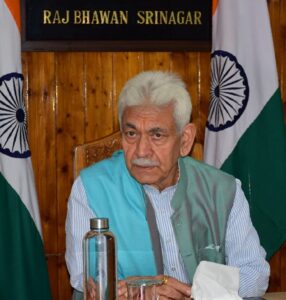See if Amul, Mother Dairy can be roped in for milk collection centre at Ghogha dairy: HC to MCD
New Delhi, Aug 20 (PTI) The Delhi High Court has directed the MCD commissioner to examine if a cooperative like Amul or Mother dairy can be involved in setting up a collection centre at Ghogha Dairy here so that dairy owners have a ready consumer for their produced milk.
The court, which recently asked the city authorities to place before it a plan on expeditious allotment of plots in the Ghogha Dairy colony to those who are willing to shift there from Bhalswa Dairy, was shown a master plan of Ghogha Dairy in northwest Delhi by the counsel for the MCD.
The counsel said the layout plan for each plot is being prepared for submission to the Municipal Corporation of Delhi (MCD) House and the final plan would be filed in the court by August 25.
that the dairy owners have a ready consumer for their produce as this would make the dairy colony self-sustaining,” a bench of Acting Chief Justice Manmohan and Justice Manmeet PS Arora said.
The court was also dealing with various applications filed by people claiming to be residents of the Bhalswa Dairy colony and aggrieved by the authorities’ direction of demolition or sealing, which would render them homeless.
The applications were filed in a pending petition relating to the poor condition of nine designated dairy colonies in Delhi — Kakrola Dairy, Goela Dairy, Nangli Shakrawati Dairy, Jharoda Dairy, Bhalswa Dairy, Ghazipur Dairy, Shahbad Daulatpur Dairy, Madanpur Khadar Dairy and Masoodpur Dairy.
The court said from the applications, it seems that the focus of the present petition and the intent of this court have not been understood by many people.
It made it clear that the petition deals with the health and well-being of the next generation of Delhi and with the food cycle of its citizens.
The intent of the petitioners is that animals not be treated cruelly and that the citizens of Delhi get healthy milk to drink and not contaminated milk, the court said.
It said cows and buffaloes that eat toxic waste cannot produce healthy and wholesome milk.
“Can we have infants drink milk from cows who are feeding on toxic waste from the Bhalswa landfill? The milk from these animals is being sold across the city to make formula milk for children and goes into making milk items like mithai etc. for thousands of consumers.
“It is in this context that the court has directed dairies situated next to sanitary landfills to be shifted. The intent of this court is to ensure that the next generation is healthy and does not suffer from life-threatening diseases,” it said.
The bench said it was also trying to ensure that the Delhi government and the MCD provide the best infrastructural facilities at the place where the dairy owners are to be resettled and rehabilitated by providing a grazing area, a biogas plant, sewage and drainage facility, a veterinary hospital and a fully-integrated milk plant.
“The present matter does not deal with real estate, it deals with the health, hygiene and safety of common people and prevention of cruelty to animals,” it added.
Earlier, the court had directed the shifting of the Bhalswa dairy colony in view of the “inability” of the statutory authorities, including the MCD and the city government, to take action to stop milch cattle from feeding on garbage from the sanitary landfills near the Bhalswa and Ghazipur dairies, as also the removal of all unauthorised constructions from all dairy colonies.
In its earlier order, the court had taken note of the “dingy” and “unhygienic” conditions of the dairy units, along with the existence of commercial constructions there.
The MCD has identified 800 illegal structures in the area and plans to relocate more than 400 dairies, which are believed to house hundreds of animals, to Ghogha Dairy on the outskirts of Delhi.
According to the MCD’s land-use rules, a dairy plot can only be used for running cattle sheds and cannot be converted into a dwelling unit.
Perusing photographs, the court had noted that there were large-scale constructions and urbanisation in some of the dairy colonies, including salons, showrooms, gymnasiums and cyber cafes.
It had said the character of the colonies had ceased to be that of dairy colonies as commercial showrooms were operating there and superstructures as high as four-storeyed had come up for residential and commercial purposes.






